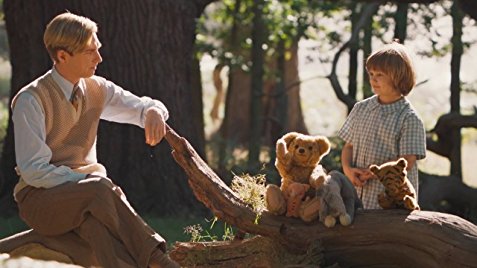(Photo: Pinewood Films)
By: Allison Upchurch, Staff Reporter
The beloved characters and stories of the Hundred Acre Woods are known throughout the world, but where exactly did these characters come from? That is the forefront of the movie Goodbye Christopher Robin.
Taking place over a period of time in the early half of the 1900’s, this movie tells the story of the famous author Alan A. Milne (played by Domhnall Gleeson) and how his son Christopher (performed by Will Tilson) inspired Milne to create and publish the famous Winnie the Pooh characters based on Christopher’s stuffed animal toys and the games they would play at home together.
The cinematic aspects of this movie are straightforward. The cinematography guides the audience throughout this story very smoothly but lacks a little in showing the transition of time. The physical settings, from the humble woods of Sussex to the grand home in central London, all play a crucial role in the development of the character’s circumstances which can bring more significant meaning and purpose into the plot.
There are also themes that reflect the nature of those people and families who lived during this time between two world wars, from dealing with PTSD to the relationship between parent and child that are weak due to the role of the nanny. These are all portrayed in the movie respectively and generously from the cast of actors, which also include Margot Robbie as Milne’s wife and Kelly Macdonald as Christopher’s nanny.
All throughout the movie, Milne is trying to find purpose in his work and frequently mentions how war is a burden on the world and the people in it. He dramatically exhibits the Jesuit value “contemplative in action” to place his mark of world peace in the world. While it may not have been exactly what he was expecting, Milne was able to take the aspect of childhood and place it in the culture of his time as a powerful entity of justice. For their world to be “right” again, Milne allowed his characters to be taken and cherished by audiences around the world as a call to return to the simpler things in life with childhood wonder and peace.

